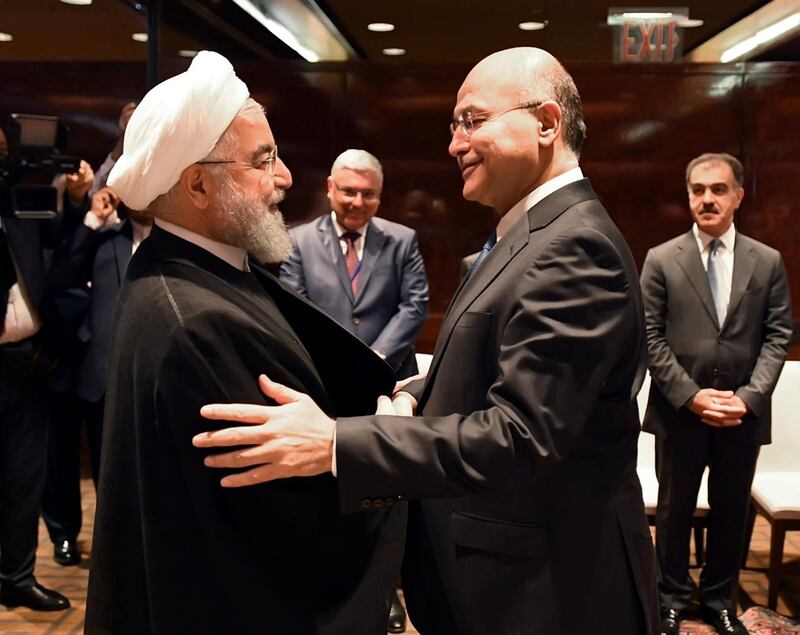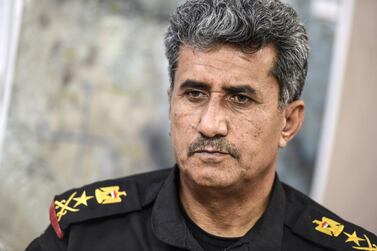Iraq on Tuesday suspended the operations of its consulate in the north-east Iranian city of Mashhad following the arrest and torture of two Iraqi diplomats.
“Foreign Minister Mohammed Al Hakim has ordered the full suspension of the consulate of the republic of Iraq in Mashhad following attacks on Iraqi diplomats,” foreign ministry spokesperson, Ahmed Al Sahaf said in a statement.
The suspension will be lifted if “Iran apologises for the attack on Iraqi diplomats,” Mr Al Sahaf said.
Iranian security forces arrested two Iraqi diplomats during their visit to the Iraqi consulate in Mashhad on September 28 arrested two Iraqi diplomats.
The Iranians did not provide an explanation for the arrests or why their diplomatic immunity was not recognised.
“We are waiting for a response and an explanation as to why our diplomats were arrested and attacked in Mashhad. We are working closely with our Iranian counterparts to provide them with the appropriate information,” Mr Al Sahaf said.
The Iraqi officials informed Iran’s security authorities that they were “foreign service employees with diplomatic immunity” but the Iranians insisted on their arrest and held them in custody for one day, according to a consulate letter addressed to the Iraqi foreign ministry.
“Their papers were transferred to a judiciary and a court demanded a payment for their bail,” said the letter that was published on Iraq’s national news agency.
The diplomats were later released without bail following pressures from the consulate and “appropriate sides,” said the letter.
Iran and Iraq fought a devastating eight-year war in 1980 but Tehran’s influence over Baghdad has increased following the US-led invasion that toppled Iran’s long-time enemy Saddam Hussein in 2003.
The invasion led to the formation of an Iraqi government led by Shiites officials who spent several years in exile in Iran when Saddam was in power.
More recently, Iran has used its influence in Iraq to assist militias to help reduce violence as a concession to Washington when Tehran was worried about a US threat to resort to force to deal with a nuclear row.
Additionally, Iraq relies on Iran for trade and gas imports to feed its power grids. Most recently the two states signed several preliminary trade deals to expand commercial and economic ties.







